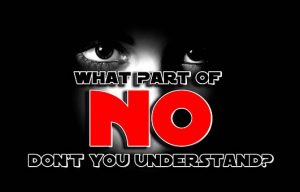McLaughlin & Nardi, LLC Congratulates its Newest Member, Pauline Young

McLaughlin & Nardi, LLC, welcomes aboard the firm’s newest member, Pauline Young. Pauline M.K. Young joined us when she was a student at New York Law School. For some reason, after getting to know us she decided to stay. We could not be happier. Besides being an excellent attorney, Pauline is, as Reggie Jackson said, the “straw that stirs the drink.” She is detail oriented, but excels at working with our staff, attorneys, clients, adversaries, judges and juries, and keeping us on an even keel in the most stressful of environments.
Pauline’s practice includes employment law, commercial law, insurance and professional malpractice, tax litigation, business and real estate transactions, solid waste law (including both litigation, transactions and A-901 applications), among a diverse set of cases she has handled. To say this, however, is give a dry listing of her experience and ignore where her talents lie. Pauline can be handed the most complex set of problems, figure them out, determine a winning strategy, and pursue it to a successful conclusion.
For example, in one recent case Pauline stepped into a complex construction defect/commercial landlord-tenant case as it was about to go to trial. She took literally tens of thousands of pages of documents, organized them – but more importantly, in an extremely short time digested and understood them – and put together a winning trial strategy in a case where each side introduced more than five hundred exhibits over two months in a hard fought trial.
 New Jersey Lawyers Blog
New Jersey Lawyers Blog


 Where We Stand
Where We Stand

 New Jersey’s Law Against Discrimination
New Jersey’s Law Against Discrimination Our employment attorneys represent New Jersey public sector employees in disputes with their governmental employers. One area in which we frequently see disputes is the failure to give a “Rice Notice” to employees whose employment may be affected by an action by their governmental employers.
Our employment attorneys represent New Jersey public sector employees in disputes with their governmental employers. One area in which we frequently see disputes is the failure to give a “Rice Notice” to employees whose employment may be affected by an action by their governmental employers. The Corporation Business Tax (“CBT”) is a
The Corporation Business Tax (“CBT”) is a  The Supreme Court of the United States has recently issued an
The Supreme Court of the United States has recently issued an  Lawsuits can settle immediately after a complaint is filed or several years into the litigation process on the eve of trial, or even during the course of a trial. Most cases will settle before a final resolution is determined by a judge or jury. Settlements generally offer a more favorable resolution than trial for several reasons: (1) both parties avoid the risk of loss at trial, (2) both parties avoid the considerable costs, time, and efforts involved in further litigation and trial, and (3) both parties avoid protracted appeals.
Lawsuits can settle immediately after a complaint is filed or several years into the litigation process on the eve of trial, or even during the course of a trial. Most cases will settle before a final resolution is determined by a judge or jury. Settlements generally offer a more favorable resolution than trial for several reasons: (1) both parties avoid the risk of loss at trial, (2) both parties avoid the considerable costs, time, and efforts involved in further litigation and trial, and (3) both parties avoid protracted appeals.